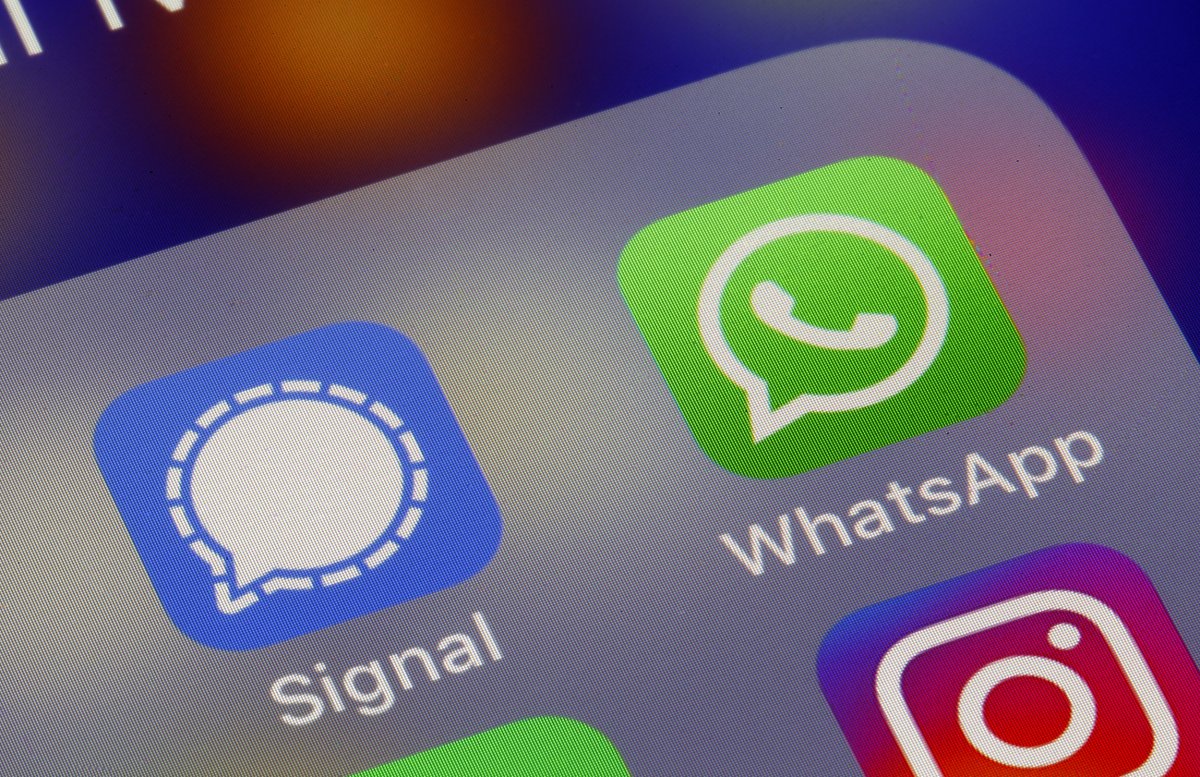WhatsApp executives have assured users their private messages won't be snooped on after an update to its policy on compulsory data sharing with its parent company Facebook caused alarm across social media last week.
Speculation that WhatsApp's secure messaging capabilities were under threat surged after users received a prompt saying they would no longer be able to use the chat app unless they agreed to new privacy rules, set to take effect on February 8.
Rumors swirled on Twitter as the prompt was perceived by some as being a notice that personal information from WhatsApp was being made available to the social network, apparently fueling downloads of alternative services including Signal and Telegram.
But in a statement, WhatsApp rejected the suggestion that the privacy of chats will be left vulnerable after the policy comes into force, and claimed it was needed to give more transparency about data that is collected when users communicate with businesses.
Will Cathcart, head of WhatsApp, tweeted on Tuesday that the update is about business communications and that it "does not impact how people communicate privately."
Today we're answering some common questions we've received @WhatsApp. Our policy update describes business communication and adds transparency. It does not impact how people communicate privately with friends or family.
— Will Cathcart (@wcathcart) January 12, 2021
Learn more and share please: https://t.co/Kx2LVx4J8g https://t.co/urp6AztLxB
WhatsApp maintains that neither it nor Facebook can see private messages or hear calls, access shared locations, see contact lists or view logs of users' usage activity.
The app uses end-to-end (E2E) encryption, which means the content inside a message to a user's personal contacts is only accessible to the sender and recipient.
However, as it is part of the Facebook family, WhatsApp's policy notes that it does share other data, including the phone number used to register, information about a user's mobile device including operating system and mobile country code, alongside some usage data such as when a user last used the app, the date they registered and frequency of use.
That data sharing with Facebook has been in place since 2016, however users initially had the option to opt-out. The new privacy policy changes that, seemingly due to how businesses now have the ability to use chats as part of Facebook marketing.
According to WhatsApp, business clients who use Facebook's hosting services can use communications with WhatsApp users for marketing purposes, which could include Facebook ads. The app said conversations with such businesses will be labeled.
Additionally, a user who purchases a business's product via WhatsApp would have their shopping activity used to tailor ads served via both Facebook and Instagram. The app said it is an optional feature, and any data sharing will be explained to the user.
Lastly, WhatsApp said Facebook may tailor advertising to users if they were to chat with a business using a WhatsApp button first encountered inside an ad. "Facebook may use the way you interact with these ads to personalize the ads you see" it said.
The changes were actually first announced in a Facebook blog post last October, which noted that "messaging a business is different than messaging a loved one."
Rival services Signal and Telegram both gained users over the past week due to the speculation surrounding the WhatsApp policy change.
Signal downloads on the iOS App Store and Google Play surged by more than 7 million between January 6 and January 10, according to data from analytics firm Sensor Tower obtained by CNBC. Telegram had 5.6 million downloads over the same period.
Signal, which tweeted on Monday that it continued to "shatter traffic records," was top of the app charts in the U.S. on Tuesday, closely followed by Telegram.
Despite the surge in rival downloads, Adam Blacker, who is vice president of insights at the analytics company Apptopia, told CNBC that WhatApp has not seen a real decline and is unlikely to lose a significant amount of its two billion-strong user base.
Blacker told CNBC: "It's too ingrained. My guess is there is a very small number of people who use WhatsApp daily that are recently deleting it.
"Even those who are downloading and using Signal or Telegram will continue to use WhatsApp as that is where most of their friends and family are. They may start to talk to certain people on Signal but still chat with their mom on WhatsApp," he said.

Uncommon Knowledge
Newsweek is committed to challenging conventional wisdom and finding connections in the search for common ground.
Newsweek is committed to challenging conventional wisdom and finding connections in the search for common ground.
About the writer
Jason Murdock is a staff reporter for Newsweek.
Based in London, Murdock previously covered cybersecurity for the International Business Times UK ... Read more
To read how Newsweek uses AI as a newsroom tool, Click here.








